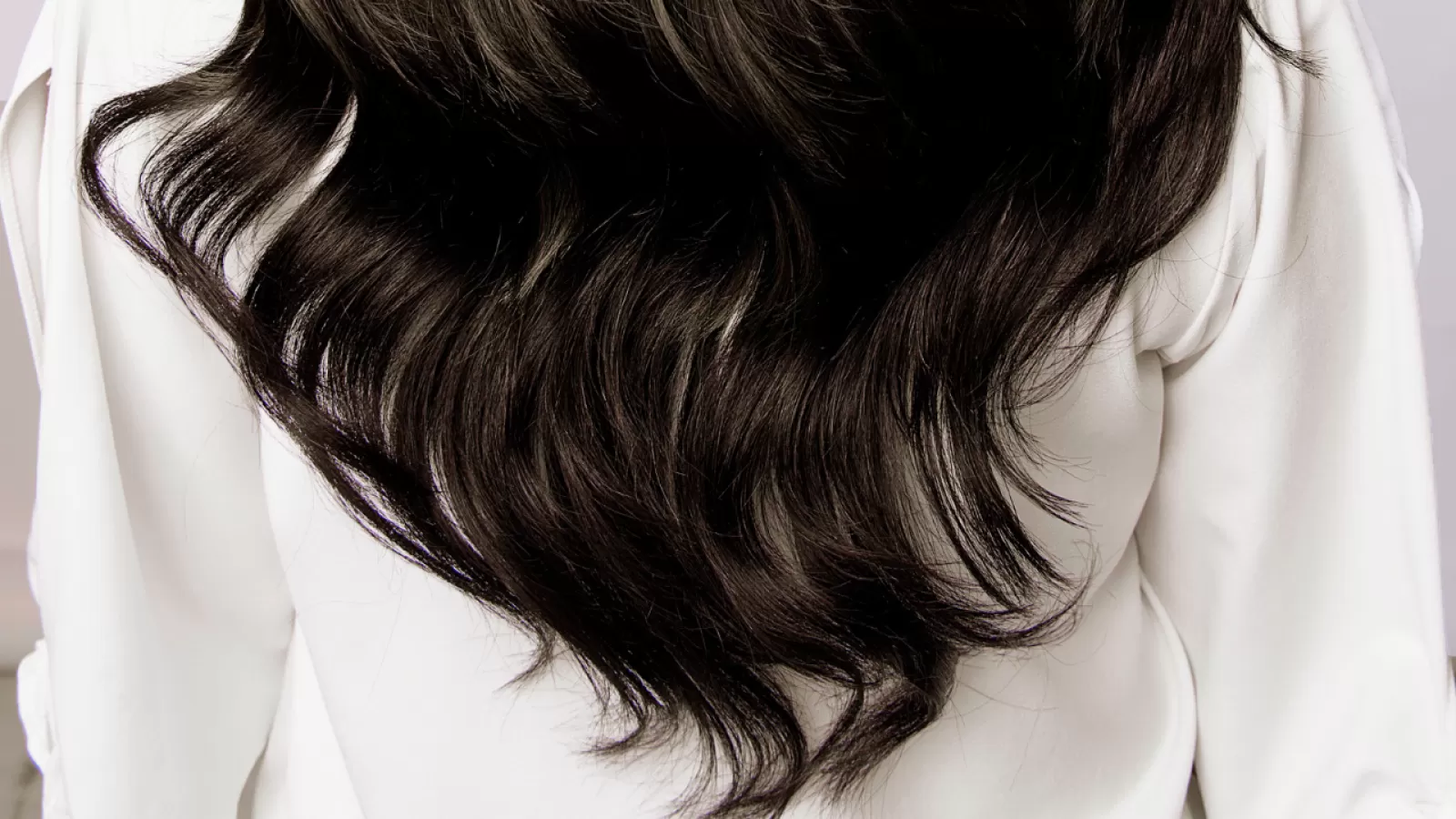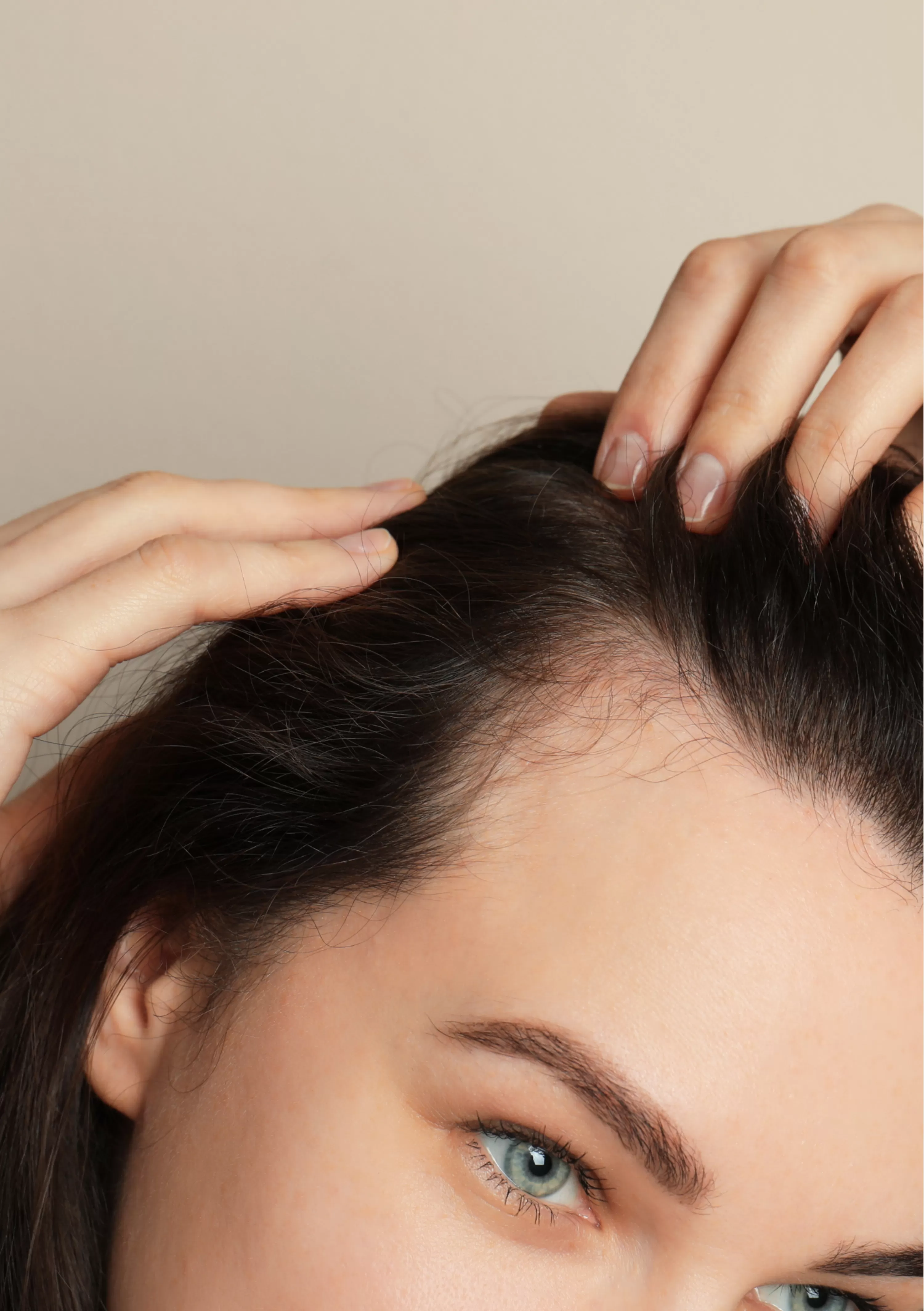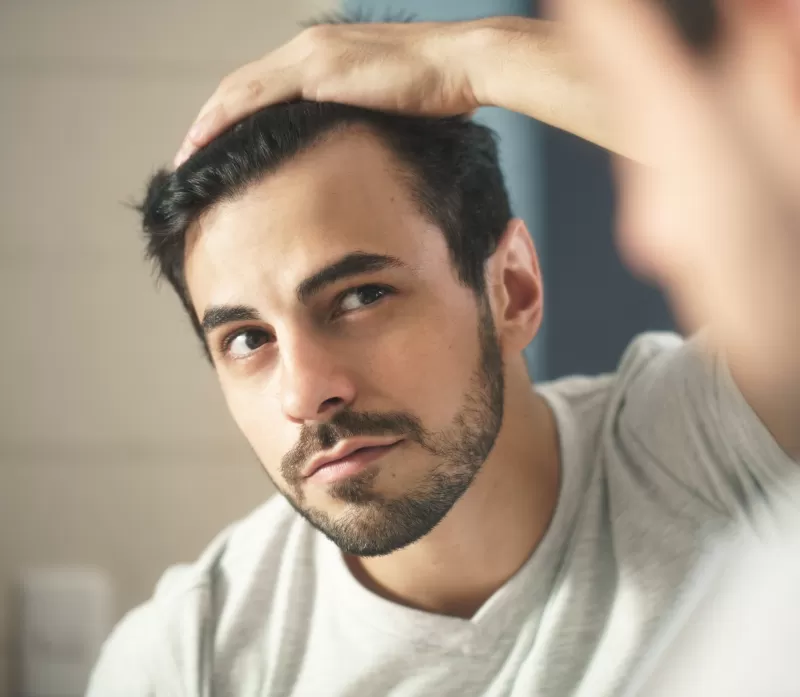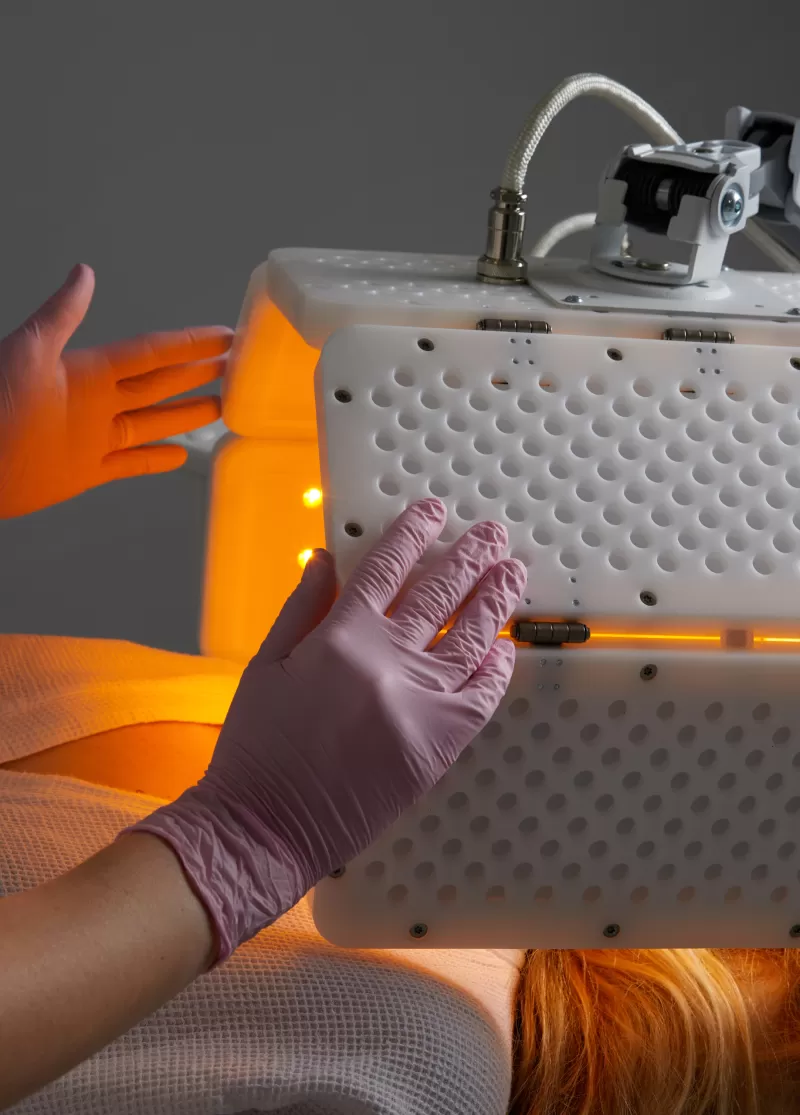Female Hair Loss
Female Hair Loss
Condition
What is female hair loss?
What is female hair loss?
Female hair loss is extremely common, particularly after pregnancy and menopause. In fact, it can affect as many as one in three women. Losing your hair can detrimentally affect your self-esteem and well-being. Fortunately, several non-invasive and effective hair loss treatments are available to reduce hair loss and even reverse it.
What causes female hair loss?
What causes female hair loss?
There are many causes of female hair loss such as hormonal imbalance, medication, stressors, lifestyle factors or other medical conditions, so establishing the correct diagnosis at an early stage is very important for treatment. As with male hair loss, androgenic alopecia is the most common cause of hair loss in women.
How can we help?
How can we help?
The Hair Institute offers solutions for female hair loss. Whether you require non-surgical treatments or FUE hair transplant surgery to restore your hair, our hair loss doctor and medical team can help you achieve your treatment goals.

FAQ
Have further questions or want to learn more?
Why does your hair fall out after having baby?
Whilst pregnant, estrogen is produced at a much higher level and prevents hair from falling out at its normal rate. Therefore, once the pregnancy has completed, nine months’ worth of hair falls out practically all at once. It might seem like there is more hair falling out, but this is only because it happens in one go.
Another reason for hair loss after having a baby is due to reduced blood flow. Blood flow increases throughout the body during pregnancy, including to the hair follicles. Once the pregnancy has completed, the blood flow drops back to normal levels within a few weeks. As a result of this, not enough oxygen is carried to the blood follicles, so some of the hair is unable to continue to grow and must therefore shed.
What treatments can hair loss caused by PCOS?
As PCOS is a hormonal condition, any medications that can improve hormonal balance can be used to help PCOS-related hair loss. This includes the contraceptive pill and Spironolactone.
What treatments are available for female hair loss?
Treatments are available for FPHL although there is no cure. It is important to know that the treatment goal is to slow or stop the progression of hair loss rather than to promote hair regrowth. However, some women do experience hair regrowth with treatment. Results are variable, and it is not possible to predict who may or may not benefit from treatment.
Available treatments that you may find for FPHL include the following:
- Topical minoxidil solution
- Hormonal treatment that blocks the effect of androgens
- Cosmetic camouflages such as using fibre powder, hair wigs
- Low-level light therapy
- PRP therapy
- Scalp massage
- Supplements
- Hair transplantation
What helps hair loss after pregnancy?
Unfortunately, there are no treatments, vitamins or medications that are proven to help hair loss after having a baby.
If you are very concerned about your hair loss after pregnancy, you can try some of the tips below to help minimise the appearance of hair loss.
- Avoid styling:
During this time, avoid any styling to your hair. The hair will be brittle and extremely sensitive, so any extreme temperatures, for example, hair rollers and straighteners, may cause more damage than normal.
Also, take care when brushing the hair. Brushing too hard can cause the hair to fall out in larger clumps than normal, so be sensitive when brushing.
- Have a healthy, balanced diet:
One of the best things you can do to regrow hair after postpartum hair loss is ensuring that your body has all the natural components it needs to start creating hair. This means eating a balanced diet of proteins, vitamins, and minerals.
What does female pattern baldness look like?
Female pattern baldness will typically start with a widening parting of the hair, or a feeling that the hair does not feel as thick as usual. The hairline does not recede during female pattern baldness, unlike in male pattern baldness. However, the scalp is likely to become more visible.
What are the common causes of hair loss in women?
- Family history (female pattern hair loss has a strong genetic predisposition)
- Hormonal imbalance (i.e. PCOS)
- Stressors (i.e. recent illness, surgery or childbirth)
- Hairstyling (i.e. traction alopecia may develop from wearing hair pulled back tightly)
- Scalp conditions (i.e. scalp psoriasis or ringworm)
- Some medications use
- Recent cancer treatment
- Sexually transmitted infection
- Nutritional deficiency (ie iron, folate, zine, or biotin)
Is female pattern baldness permanent?
Unfortunately, female pattern baldness causes the hair follicles to miniaturise, this means that they will never be able to grow back normal healthy hair again. Although proper treatment can stop the hair loss, and potentially regrow some of the hair you’ve lost, this can take up to 12 months to start working.
How does menopause cause hair loss in women?
Menopause causes large changes in the level of hormones in the body, including a rise in androgens. These androgens affect hair follicles, causing them to shrink and be unable to grow hair fibres. This ultimately results in hair loss.
However, hair loss whilst going through the menopause may be circumstantial, rather than a direct cause-effect relationship. The menopause can be extremely stressful, and stress is known to have an effect on the hair follicles, causing the hair to shed. If hair loss is caused by stress, rather than a direct result of the hormonal fluctuations instigated by the menopause, your hair could grow back without too much or any interference.
How can polycystic ovarian syndrome (PCOS) cause hair loss?
PCOS causes huge hormonal changes in the body, similar to the menopause. Hair loss caused by PCOS is a well-recognised and troublesome side effect that happens as a result of the female body producing too many male hormones, in particular, testosterone. This testosterone gets converted into DHT, which is what affects the hair follicles. The DHT miniaturises the hair follicles, ultimately causing female pattern baldness.
Can Hormone replacement therapy help with hair loss in women going through menopause?
Taking HRT can sometimes slow down or even stop hair loss in some women, although it is hard to predict who will benefit. In some cases, HRT will not affect the rate of hair loss, and it will still occur throughout the menopause.


